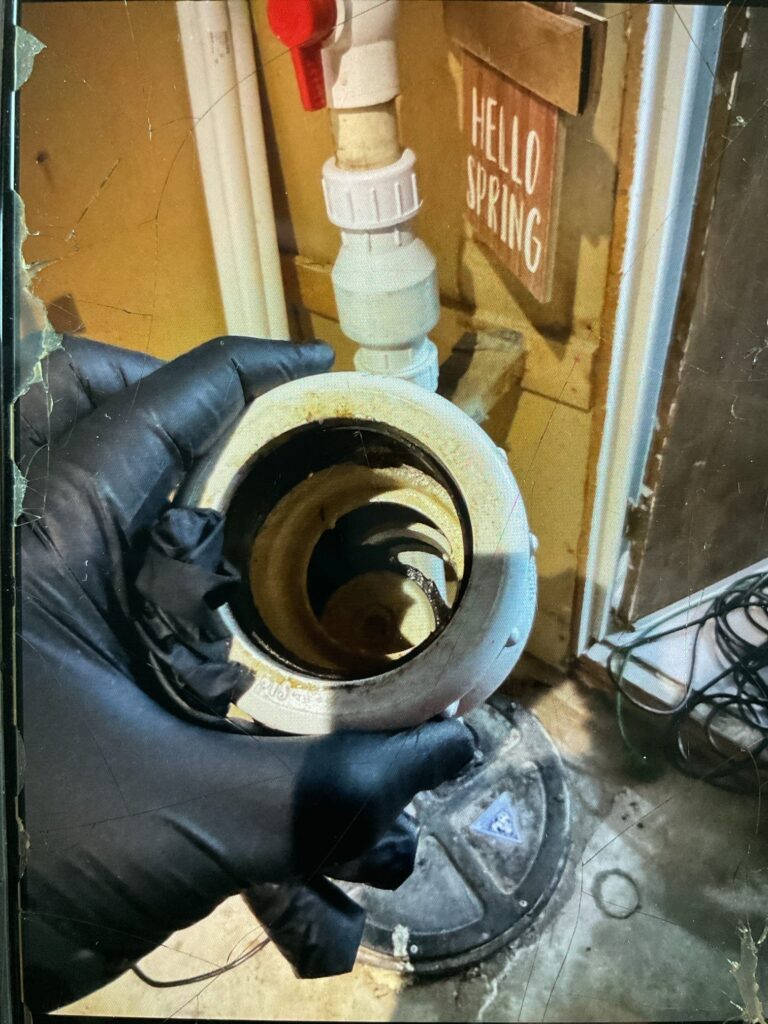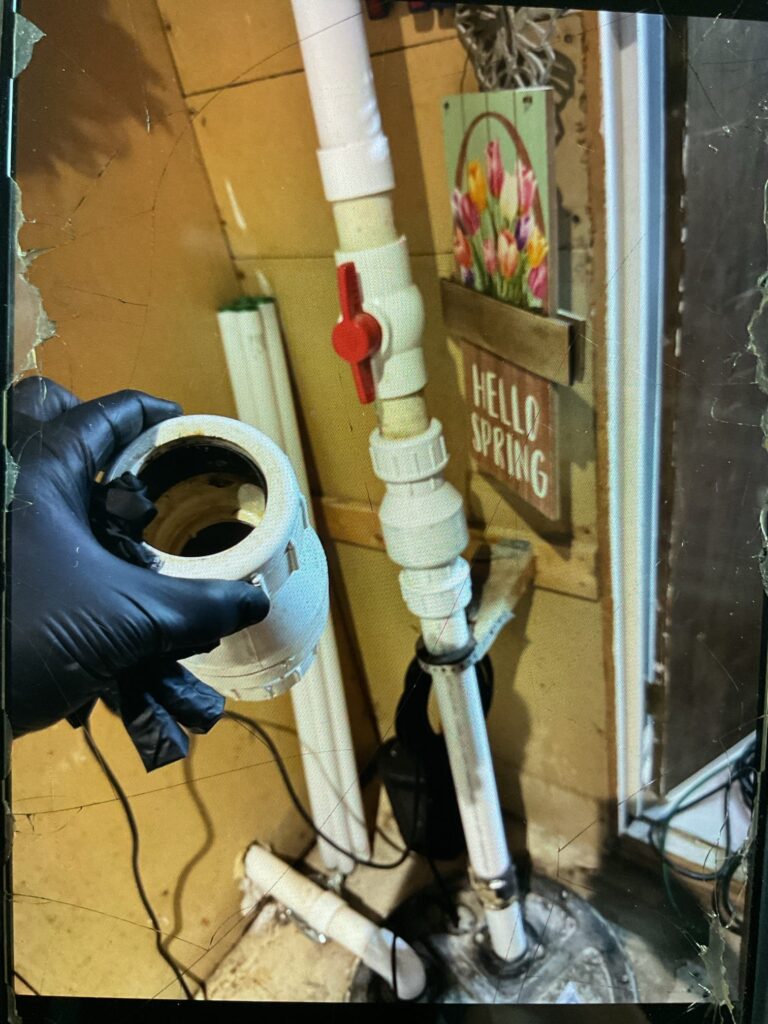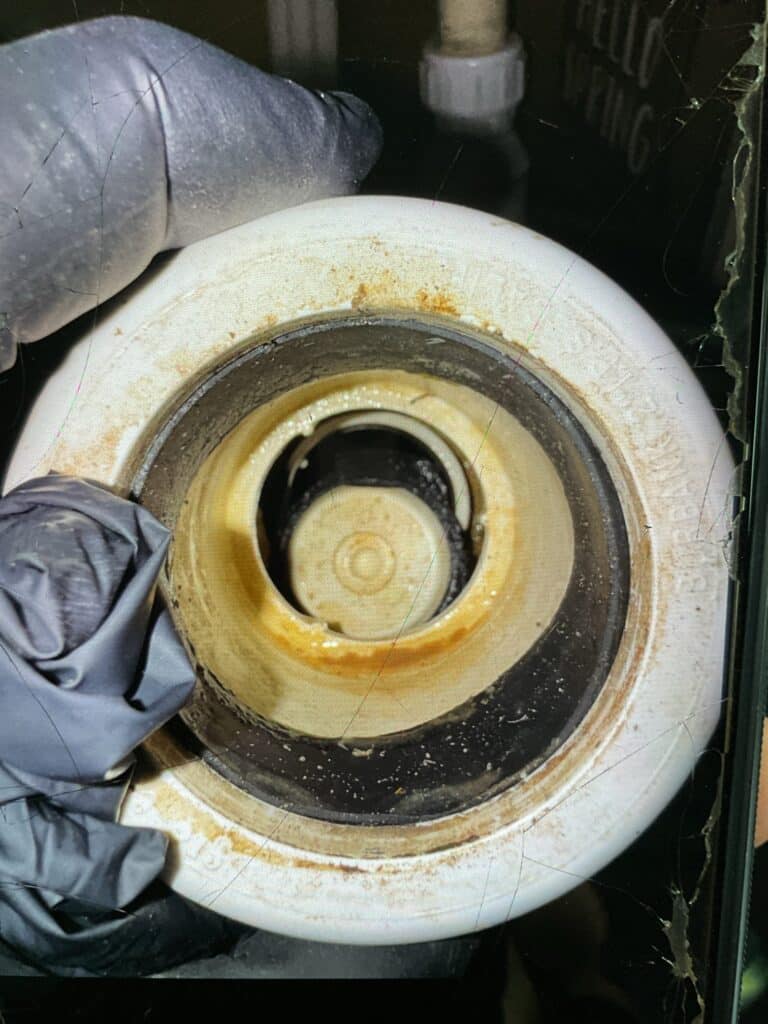Check Valve Problems? How We Saved a Roswell Homeowner from a Sewage Ejector Pump System Replacement

If you’ve got a sump pump or sewage ejector pump system in your home, you probably rely on it without thinking twice—until something goes wrong. And when it does, most homeowners assume the pump is to blame. But often, it’s a simpler (and much cheaper) fix: the check valve.
A check valve is a small but critical component that keeps your system working the way it should. Let’s look at what it does, what can go wrong, and what a recent Roswell service call revealed about how important this part really is.
Know the Difference: Sump Pump vs. Sewage Ejector Pump System
Many people use the terms “sump pump” and “ejector pump” interchangeably, but they’re designed for very different jobs.
A sump pump is responsible for collecting and removing groundwater from your basement or crawl space. It’s typically installed in a pit and activated when heavy rain or high water tables threaten to flood your home.
A sewage ejector pump system, on the other hand, is designed to remove wastewater from fixtures like toilets, showers, or laundry machines when those drains are located below your home’s main sewer line. If your basement bathroom doesn’t have gravity on its side, chances are you’ve got an ejector pump moving that waste up and out.
Although both systems rely on pumps and pits, they handle different materials and are built to different standards. That distinction is important—especially when diagnosing problems.
What Does a Check Valve Do?
A check valve is a one-way valve installed on the discharge pipe of either a sump pump or a sewage ejector pump system. Its job is simple but essential: it prevents water or waste from flowing backward into the pit after the pump shuts off.

In a sewage ejector pump system, the check valve keeps the pumped sewage from draining back into the basin, which would otherwise lead to unnecessary water buildup or potential backup.
A sump pump check valve functions the same way, but in a cleaner environment. Instead of preventing backflow of wastewater, it stops rainwater or groundwater from re-entering the pit.
If your system is missing a check valve—or if the valve has failed—you might hear gurgling, notice water backflow, or see your pump acting irregularly. These symptoms often lead people to believe the pump has failed, but in many cases, the fix is much simpler.
Roswell Plumbing Call: It Wasn’t a Clogged Sump Pump After All
Recently, a homeowner in Roswell gave us a call because they thought their sump pump might be clogged. After taking a closer look, we found that they actually had a sewage ejector pump system—not a sump pump—and the real issue was a broken check valve on the discharge line.
That small part was causing the trouble, not the pump itself. Once the check valve was replaced, everything went back to working as it should.
Why Check Valve Replacement Is a Smart First Step
Replacing a check valve is one of the more straightforward, but labor intensive, plumbing repairs—especially compared to replacing an entire pump system. In most cases, the repair involves:
- Turning off power to the system
- Clearing the pit of wastewater
- Disconnecting the discharge pipe
- Removing the old check valve and installing a new one
- Securing and testing the system
For homeowners, that means less mess, less labor, and a significantly smaller bill than a pump swap. And when done by a professional, the new check valve can last for years.
When to Suspect a Check Valve Issue
If your sump pump or sewage ejector pump system is acting up, the check valve should be one of the first components to check. Signs of a problem include:

- Water or waste backing up into the pit
- The pump running more often than usual
- Gurgling or knocking noises after the pump shuts off
- Wet spots or sewage smells near the pit
Even if you’re not sure what type of pump you have, these symptoms can help your plumber get to the root of the issue faster—and potentially save you from a larger repair.
Serving Roswell Homeowners with Honest, Targeted Plumbing Solutions
At Aaron Plumbing, we know the difference a functioning sewage ejector pump system can make. That’s why we don’t jump to worst-case scenarios or recommend full pump replacements unless it’s truly necessary. Sometimes, it really is just the check valve—and we’re happy to help you figure that out.
If you’re in Roswell or the surrounding area and your sump pump or sewage ejector pump system is giving you trouble, give us a call. We’ll inspect the system, explain what’s going on, and walk you through your best options.
Whether it’s a check valve, float switch, or something bigger, we’ll treat your home like our own—and get your system running the way it should.



